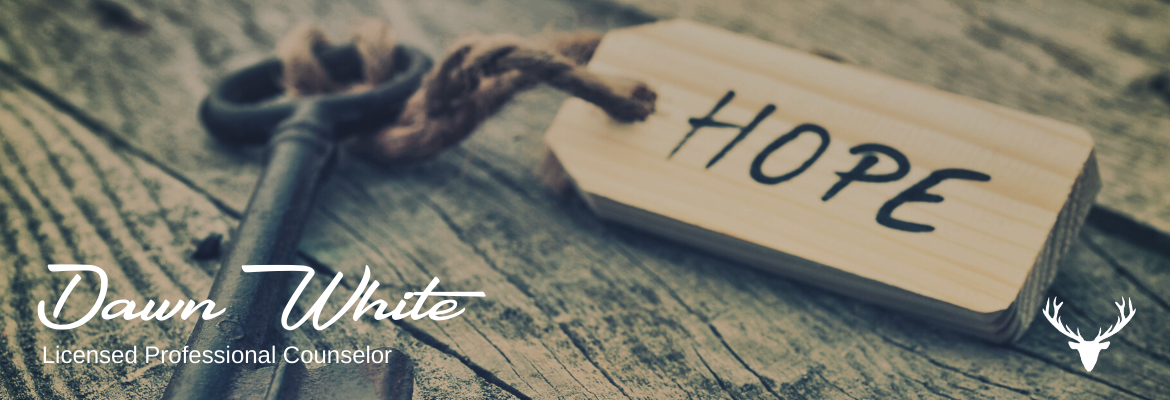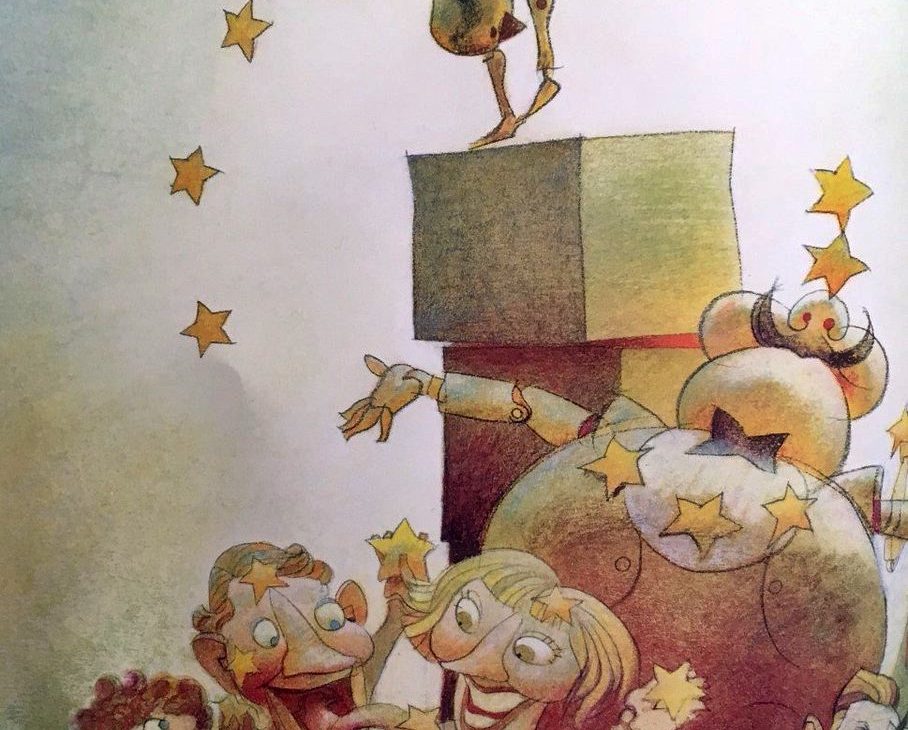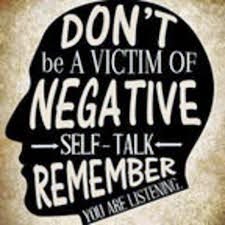
Sticker Shock!
Essential or Non-essential: Resisting the Unfair Labeling of the Pandemic
In his whimsical storybook, You Are Special, author and speaker, Max Lucado, tells the story of the wooden Wemmicks: “All day, every day, the Wemmicks did the same thing: They gave each other stickers. Each Wemmick had a box of golden star stickers and a box of gray dot stickers. Up and down the streets all over the city, people spent their day sticking stars or dots on one another. The pretty ones, those with smooth wood and fine paint, always got stars. But if the wood was rough or the paint chipped, the Wemmicks gave dots.”1

The pandemic of 2020, in a bizarre and paradoxical sense, has spawned an even more pressing, profound and dire epidemic: the crisis of spiraling feelings of insecurity. While most of us have had to deal with feelings of insecurity long before the onset of COVID-19, the damage done by thinning humans out of the workforce with the “golden star stickers” of “Essential” or giving “gray dot stickers” of “Nonessential” has shattered the confidence and security of many in our society.
Beverly D. Flaxington writes in a 2015 article for Psychology Today: “Our self-esteem is tried on an everyday basis, and quite frankly—unless you are a complete narcissist or live on a deserted island—it’s rather common and unavoidable. Prodigal celebrities, critical bosses, judgmental peers, successful neighbors, and overachieving siblings can all make you feel like you haven’t done as well or accomplished as much. And as if there weren’t enough causes for insecurity, here is one more: Facebook. Researchers have found that prolonged Facebook usage negatively impacts the users’ self-esteem, with women being more affected than men.”3
And now we have all been given new labels, Essential or Nonessential—thanks to the alien-shaped cornavirus. According to many governors, essential workers are those who provide some variety of top-level care, protection, services or goods, while those in the entertainment, recreational, or leisure sectors are deemed nonessential. The sudden shift of values has taken a toll on the way people see themselves, and when individuals begin to compare themselves to others by these new standards, views of self can nosedive. Flaxington explained it this way five years ago: “Waning self-assurance fosters insecurity, which in turn breeds a whole host of unbecoming emotions and behaviors: anxiety, envy, depression, obesity, alcoholism, and other similar related disorders and phobias sprout as a result of low self-confidence.”
Navigating this mental attack takes intentionality and practice. Consider these exercises to help eradicate feelings of inadequacy and boost confidence and self-care:
- Reframe your self-talk. We can be our own biggest bullies and toughest critics. It is not the world, but the voices inside our heads that say, “I’m not good enough.” Stop the negative self-talk. Do not let your fears and doubts get the best of you. Practice positive self-talk, recognize your achievements, congratulate yourself on small victories, and focus on how you can improve versus what you think are lacking.

- Make a list of three things you do well each day. Are you prompt and always on time? Check. Can you make a delicious dinner using a recipe? Check. Do you know how to show someone you care about them? Check. Everyone can find at least three things they are good at, so go ahead and list as many as you can think of. The small everyday things are actually the ones that really matter.
- Refuse to compare yourself. Your mother and those geneticists are right—we are all one-of-a-kind individuals. Our looks and personalities are unique and so are our skill sets and circumstances. There will always be someone who is better than you at something, but then again, you are better than others at something else. Comparison is a losing game that causes much disappointment; refuse to play it.
- Prioritize what’s important each day. Some days you may feel like you have wasted your time and haven’t really done anything, despite being busy all day. Sometimes there is so much to do that you don’t even know where to start. So, you get confused—or too excited—and start on everything at once and then struggle to finish anything at all. You need to set your priorities right, otherwise you will not be able to utilize the time effectively. Make a to-do list, record your tasks according to their importance and urgency, and don’t forget to allot the time needed to accomplish each one of them. Stay realistic regarding your abilities to avoid regret and disappointment. Your life is made of these days; don’t let even a single one go to waste.3
- Avoid Letting Insecurity Drive Your Actions. For some, insecurity results in needing to compete or assert control. You may want to push harder, dig in, and make noise so you feel seen or productive. Impulsive action in the absence of introspection, thinking, or being strategic can end up backfiring. Once those survival instincts kick in, pursuing instant gratification may become an overpowering need. Before hitting ‘send’ on that decision, calendar invite, email, social media post, or telephone call, stop and ask yourself: what emotions are driving this decision?
- Refuse to Let the Virus Destroy Your ‘Why.’ We are all motivated and inspired by something. That something is your ‘Why.’ There is no such thing as a wrong ‘Why’ and people often have more than one. While the current climate created by the virus may be creating chaos all around you, your Why remains unchanged. Remember Covid-19 is the reason things may have shifted for you – not your knowledge, skills, or abilities. Don’t let Covid-19 destroy your Why.
- Limit or Stay Off of Social Media. Even in the best of times, social media has been scientifically proven to exacerbate pre-existing feelings of insecurity or fear of missing out. Now, more than ever, social media has become a dumping ground for grandstanding, humble bragging, and soapboxing. If you are working through feeling self-conscious or anxious about your current circumstances, continuously scrolling social media may be doing more harm than good. At a minimum, consider making changes to the people and topics populating your feed so what you see and read are informative and motivational.
- Help Others. There is no equivalent to the emotional boost of doing good. While volunteering in person may be limited right now, there are still ways to feel good and make a difference. If your local food pantries need supplies, drop off non-perishables. Call and leave voicemails at your favorite haunts and remind them how much you care. Buy someone’s pick-up at the drive-through.
- Remember You are the Sum of Many Parts. There is no getting around the fact that depending on your current circumstances, certain portions of your life may have been downgraded overnight. You may have lost your job. You may be facing the reality of losing your business. Your goods and services might be getting harder to sell. Your projects may be getting delayed. All scary and demoralizing experiences. Remember, in this moment, that you are not one dimensional. You are the sum of many parts. Rejection and loss in one area of your life does not imply that the whole of your existence has been rejected or lost. Who are your dependents? Pets, kids, parents, siblings, your church, your community, even your favorite stores and restaurants – they all need you.2
Spoiler alert. You Are Special ends when a very gray dot-covered Wemmick makes friends with a Wemmick to whom no stickers stick. She encourages him to speak with the Master Wemmick-Maker, Eli: “The stickers don’t stick to her because she has decided what I think is more important than what they think. The stickers only stick if they matter to you. The more you trust my love, the less you care about their stickers. You are special because I made you. And I don’t make mistakes.”
The Wemmick began to believe it was true, and that Eli really meant it. And as the Wemmick believed it, a dot fell to the ground.”
With intentional practice and determination not to be labeled by anyone or anything, the pain of feeling less than, not good enough, or nonessential can be lessened or even extinguished. And the dots of self-doubt and insecurity will begin to peel away, just like they did with the Wemmick. No matter what— you’re essential!
Dawn White is a Licensed Professional Counselor (LPC), Registered Play Therapist (RPT), and has advanced training in Emotionally Focused Therapy (EFT) (relationship counseling). She works with individuals of all ages, couples and families. Dawn’s home office is located in Chesterfield, SC. She can be reached at 843-287-0745, on FaceBook, or https://sdlwhite.wixsite.com/dawnwhitecounseling/about.
Notes –
1Lucado, Max. You Are Special. 1997. Crossway Pulblishers.
2Chakravorty-Campbell, Pubali. “Essential v. Non-Essential: Is Feeling Discretionary a Symptom of the Virus?” SHRMBlog, 03/2020
3Flaxington, Beverly D. “The Epidemic of Insecurity: Getting Your Mojo Back.” Psychology Today, 04/2015.



